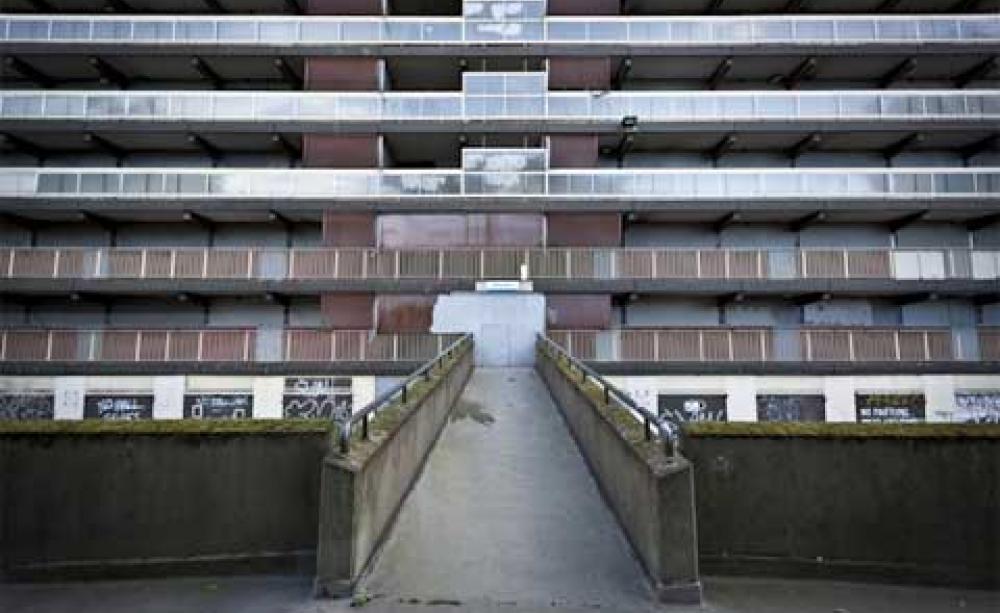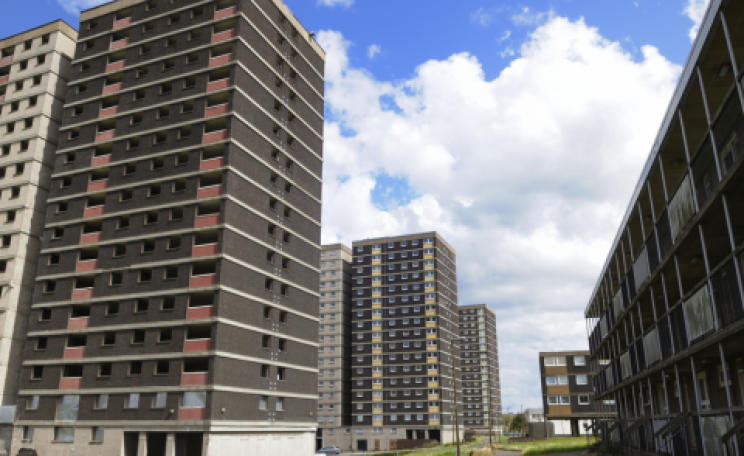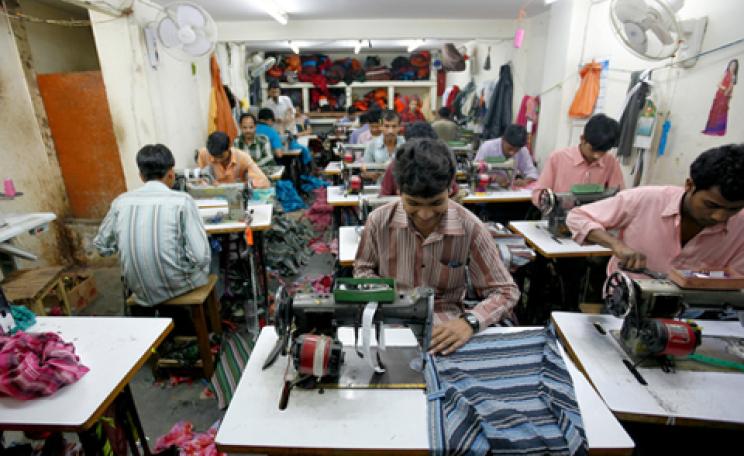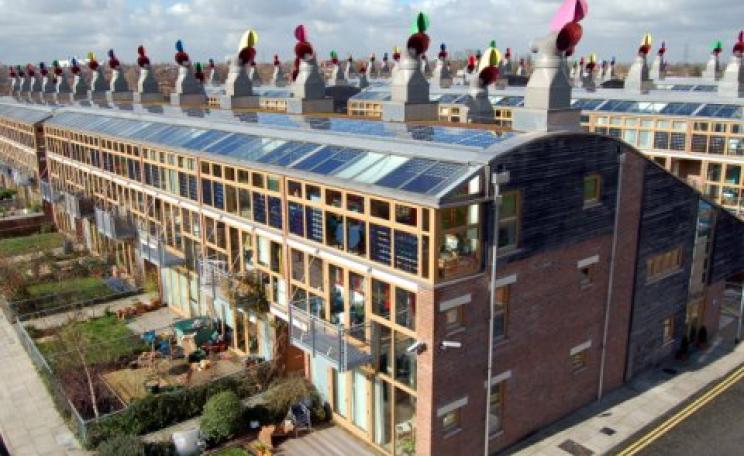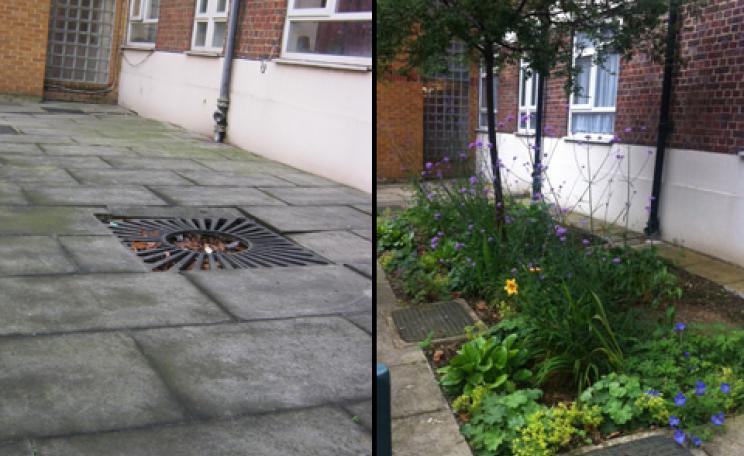The UK faces a housing crisis, with a growing population and spiralling rental costs made worse by the recent financial crisis. However, where many find it increasingly difficult to buy or even rent, a large number of homes in the UK remain vacant. A Halifax survey published in December 2010 estimated there were 296,000 homes in the UK left empty for more than six months; some estimate as many as one million homes could be created from empty buildings.
With rents in London now averaging £1000 per month it is unsurprising that many cannot afford decent housing. Homeless charity Crisis estimates up to 10,000 people in the UK live in squats, with up to 290,000 living in overcrowded or unsatisfactory conditions. The Empty Homes Agency estimates there are 1.7 million families on housing waiting lists.
Not surprisingly, some see squatting as the only option. However, recent media horror stories have left the public in fear of squatters and the government is now debating strengthening anti-squatting laws, which could criminalise occupation of even long-term vacant properties.
Squatting in England, Wales and Northern Ireland is currently legal in an unoccupied building; it only becomes illegal once squatters refuse to leave once requested, or if criminal damage occurs.
Protecting the most vulnerable
Squash Campaign opposes government proposals to strengthen anti-squatting laws and says such legislation will only serve to victimise the most vulnerable in society.
Rueben Taylor, of Squash, said: ‘"Squatters' rights" are something of a mythical entity - the legislation which prevents squatters from being violently evicted is essentially the same as that which protects any other tenant. Under the government's proposals, any landlord who wants a fast means to evict tenants need only tell the police that they are squatters to have them immediately removed and arrested.'
He added many vulnerable people do not have tenancy agreements and this would leave police in the impossible situation of deciding on the spot whether tenants are genuine.
Yiannis Voyias, of the Advisory Service for Squatters, made a Freedom of Information Act request to Camden Council to reveal a list of empty properties in the borough and Judge Fiona Henderson ruled in favour of disclosure. However, Camden Council's lawyers plan to fight the ruling.
A Camden Council spokesman said: ‘We remain extremely concerned with the decision that requires us to divulge information that could be used by those seeking to occupy not just council owned, but also private property as squats.
‘This judgement arguably leaves councils and property owners as hostages to fortune. In our opinion it will lead to an increase in squatting and additional security and legal costs will be incurred that ultimately will be borne by taxpayers, council tenants and the owners of private property.'
Rueben Taylor, from Squash, said: ‘There is no evidence that squatters cause more anti-social behaviour than any other tenant. On the contrary, squatters generally occupy buildings that are in state of disrepair, and invest a huge amount of time and energy in returning them to a habitable condition. Empty buildings become dilapidated, causing problems for adjoining buildings, running down communities, and depressing local businesses. The real "criminal damage" is that caused by speculators and developers who gut properties and intentionally make them uninhabitable in order to prevent homeless people using them for shelter.'
He added: ‘We hope to prevent squatters from losing their homes and being given criminal records simply for attempting to keep a roof over their heads.'
Most empty homes are owned by individuals with one or two properties, or above shops originally intended for employees, and as employment patterns changed, many have become vacant. Some owners simply lack the skills to manage and let properties, which then fall into disrepair.
In addition, many building and regeneration projects in the last three years have stalled due to the financial crisis, leaving liveable housing standing empty.
Renovation vs. new build
An alternative to building more homes, reusing empty properties is a cost-effective and efficient option. The Empty Homes Agency states the average cost of renovating an empty home is about £10,000 and that renovating an empty house generates about a third of the CO2 emissions of building a new one.
Often old housing stock is of better quality than its new build replacement. In Liverpool a privately-funded renovation of houses abandoned after being dubbed ‘the worst streets in Liverpool' has reinvigorated homes that otherwise would have faced the bulldozer.
At the recent Lib Dem and Conservative conferences, housing was a key issue as many voters now consider housing a priority.
Meanwhile, one bottom-up solution is guardianship schemes. Dot Dot Dot Property Guardians is piloting providing owners of unoccupied buildings with temporary residents, namely volunteers active in their communities and those on low incomes.
Dot Dot Dot director Katharine Hibbert says: ‘We've been extremely impressed by the calibre of people who are coming to us - reliable, committed, likeable people who are doing great stuff for the rest of society - the kind of people you'd be very glad to have living next door to you. The level of interest just goes to show how serious the housing problems are in the county and particularly in London where we're currently focussed. Most of the people who approach us are working - but they're still sleeping on sofas, living with family or staying in bad-quality and over-priced private rented accommodation.'
‘I do believe, though, that information about long-term empty properties should be publicly available - they are a problem for everyone, not just the private business of the person who owns them, since they disfigure streets and are a real waste at a time of housing shortage. And as things stand, it's extremely hard to find out much about places which appear to be empty.
‘The more information about them that is available, the more likely it is that organisations like mine, charities, businesses, individuals who want to buy or rent and refurbish empty places, or community groups who want to put pressure on owners to get buildings back into use, will be able to get this done.'
Laura Laker is a freelance journalist
| READ MORE... | |
 |
HOW TO MAKE A DIFFERENCE How to reclaim the empty shops on your local high street A pioneering network has a toolkit for turning the nation's decrepit private spaces into public places |
 |
GREEN LIVING Building houses with straw bales A house built with straw could cost as little as £70,000 to build - and some are still standing after 140 years. Barbara Jones' fantastic book Building with Straw Bales reveals all you need to know |
 |
VIDEO Why we need a right to build our homes Rather than depend on a corporate oligopoly to build our homes for us, why not introduce a 'right to build' for everyone... |
 |
COMMENT We need a citizens' housing revolution Self-builders are no longer a niche segment of society: they are industrious, skilled, innovative individuals who should be helped to create vital, sustainable communities |
 |
COMMENT Matthew Hancock MP: slash costs and carbon with better property management Launching a major new report, the chair of the Westminster Sustainable Business Forum argues that local government can save £7 billion a year in running costs, cut carbon and improve services by better managing its property assets |

